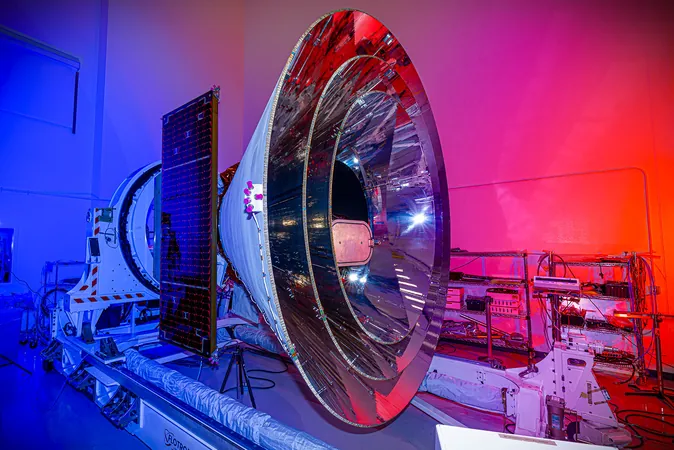
Clash of Titans: Microsoft AI Chief and Sam Altman Debate the Path to AGI
2024-12-09
Author: Amelia
Clash of Titans: Microsoft AI Chief and Sam Altman Debate the Path to AGI
In a captivating discussion surrounding the future of Artificial General Intelligence (AGI), the head of Microsoft's AI division and tech visionary Sam Altman have publicly expressed diverging views on what constitutes true AGI and how we might achieve it.
The concept of AGI, often confused with the notion of the "singularity," is currently at the forefront of AI research and development. According to Microsoft's AI chief, AGI signifies a general-purpose learning system capable of excelling across diverse human-level tasks, including knowledge work and physical labor. "AGI isn’t the singularity," he emphasized, clarifying that the singularity involves an exponentially self-improving intelligence that could surpass human capabilities in an incredibly rapid manner.
While envisioning a future where AI might learn independently from prior input, he expressed skepticism about the complexities and current limitations in robotics. "It's not simply about creating systems that can work in various environments; it’s about understanding the breadth of tasks they can perform,” he stated. The implication? While AIs may soon handle many human tasks over the next five to ten years, achieving AGI may still be a distant goal.
In stark contrast, Sam Altman has been more optimistic about the potential for rapid advancements leading towards AGI. He emphasizes the importance of focusing on building AI systems that are not only advanced but also accountable and beneficial to humanity. "What I care about is creating AI companions that can genuinely assist and collaborate with humans," he declared, underscoring his vision for AI systems that can be a part of our daily lives.
Moreover, the discourse has raised critical questions within the tech community. As companies race to develop sophisticated AI technologies, the debate between focusing on practical capabilities versus idealized forms of intelligence continues to thrive. Experts warn that sensationalizing concepts like the singularity can detract from recognizing the attributes that truly enhance AI performance.
Ultimately, while differences persist on what defines AGI and how to achieve it, both leaders agree on the necessity of creating AI that serves humanity positively. As AI technology progresses, this discussion highlights a vital need to approach innovation thoughtfully, ensuring that emerging systems are not just smarter but also align with human values and ethics.
Stay tuned as this debate evolves and shapes the future of AI, where who gets it right may define the trajectory of technology for generations to come!









 Brasil (PT)
Brasil (PT)
 Canada (EN)
Canada (EN)
 Chile (ES)
Chile (ES)
 España (ES)
España (ES)
 France (FR)
France (FR)
 Hong Kong (EN)
Hong Kong (EN)
 Italia (IT)
Italia (IT)
 日本 (JA)
日本 (JA)
 Magyarország (HU)
Magyarország (HU)
 Norge (NO)
Norge (NO)
 Polska (PL)
Polska (PL)
 Schweiz (DE)
Schweiz (DE)
 Singapore (EN)
Singapore (EN)
 Sverige (SV)
Sverige (SV)
 Suomi (FI)
Suomi (FI)
 Türkiye (TR)
Türkiye (TR)